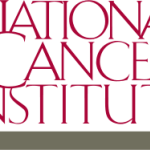- Branche: Government; Health care
- Number of terms: 6957
- Number of blossaries: 0
- Company Profile:
The National Cancer Institute (NCI) is part of the National Institutes of Health (NIH), which is one of 11 agencies that compose the Department of Health and Human Services (HHS). The NCI, established under the National Cancer Institute Act of 1937, is the Federal Government's principal agency for ...
A low molecular weight polymer-conjugated platinum complex with potential antineoplastic activity. This polymer drug delivery system consists of cytotoxic diaminocyclohexane (DACH)-platinum (Pt) coupled to a water-soluble biocompatible hydroxypropylmethacrylamide (HPMA) copolymer via a pH sensitive linker. Due to decreased pH in tumor sites, the linker is cleaved and the chelated active moiety DACH-Pt is released in tumor cells. DACH-Pt alkylates macromolecules and causes both inter- and intra-strand platinum-DNA crosslinks, which impede DNA replication and transcription, resulting in cell-cycle independent cytotoxicity. The HPMA-based drug delivery system increases the concentration and prolongs the half-life of DACH-Pt in tumor sites, while minimizing adverse effects on normal tissues.
Industry:Pharmaceutical
A low molecular weight heparin (LMWH) composed of a heterogeneous mixture of sulfated polysaccharide glycosaminoglycan chains obtained by depolymerisation of porcine mucosal sodium heparin, extraction/purification and conversion to the calcium salt. Nadroparin binds to antithrombin III (ATIII) and inhibits the activity of activated factor X (factor Xa), thereby inhibiting the final common pathway of the coagulation cascade and preventing the formation of a cross-linked fibrin clot.
Industry:Pharmaceutical
A long-acting, synthetic peptide with gonadotrophin-releasing hormone (GnRH) antagonistic properties. Degarelix targets and blocks GnRH receptors located on the surfaces of gonadotroph cells in the anterior pituitary, thereby reducing secretion of luteinizing hormone (LH) by pituitary gonadotroph cells and so decreasing testosterone production by interstitial (Leydig) cells in the testes.
Industry:Pharmaceutical
A low molecular weight agent with antineoplastic activity. Benzoylphenylurea binds to the colchicine binding site on tubulin, thereby blocking tubulin polymerization and disrupting mitotic function. This agent also inhibits DNA polymerase, and has been shown to arrest leukemia cells in the G1-S transition phase of the cell cycle.
Industry:Pharmaceutical
A long-acting, pegylated variant of filgrastim (recombinant human granulocyte colony-stimulating factor (G-CSF)) with immunomodulating activity. Similar to endogenous G-CSF, this agent binds to and activates specific cell surface receptors, stimulating neutrophil progenitor proliferation and differentiation and selected neutrophil functions. The modification of this version of filgrastim with the addition of a Y-shaped branch of polyethylene glycol at a specific lysine residue (Lys 17) theoretically serves to extend the half-life of the agent.
Industry:Pharmaceutical
A long-acting, pegylated recombinant variant of human granulocyte colony-stimulating factor (G-CSF) with immunomodulating activity. Pegylated granulocyte colony stimulating factor MAXY-G34 contains multiple non-naturally occurring lysines that have been introduced into alpha helixes of wild type human G-CSF as pegylation sites; other naturally occurring lysine residues have been removed to prevent pegylation and the variant G-CSF is pegylated with methoxypolyethylene glycol succinimidyl propionate (mPEG SPA) at three amino acid residues. Similar to endogenous G-CSF, this agent binds to and activates specific cell surface receptors, stimulating neutrophil progenitor proliferation and differentiation and selected neutrophil functions. A difference in the degree of pegylation may account for the extended half-life of this agent compared to pegfilgrastim which is pegylated at only one amino acid residue.
Industry:Pharmaceutical
A long-acting barbituric acid derivative with antipsychotic property. Phenobarbital binds to and activates the gamma-aminobutyric acid (GABA)-A receptor, thereby mimicking the inhibitory actions of GABA in the brain. The activation effects of the phenobarbital-receptor-ionophore complex include increased frequency of chloride channel openings, membrane hyperpolarization and ultimately synaptic inhibition and decreased neuronal excitability. In addition, this agent inhibits glutamate induced depolarization.
Industry:Pharmaceutical
A locked nucleic acid (LNA) antisense oligonucleotide targeting survivin mRNA, with potential antineoplastic activity. EZN-3042 hybridizes to survivin mRNA, thereby blocking translation of survivin protein and inhibiting survivin-induced anti-apoptotic activity and promoting tumor cell apoptosis in survivin-overexpressing tumor cells. Survivin, a member of the inhibitor of apoptosis (IAP) family expressed during embryonic development, is upregulated in a variety of human cancers while absent in most normal adult cells; its expression in tumors is associated with a more aggressive phenotype, decreased survival, and increased resistance to chemotherapy. LNAs contain a methylene bridge linking 2'-oxygen and 4'-carbon of ribose sugar rings, thereby increasing their stability and decreasing degradation.
Industry:Pharmaceutical
A live-attenuated strain of the Gram-positive bacterium Listeria monocytogenes (Lm) with potential immunostimulatory and antineoplastic activities. Upon intravenous administration, attenuated Listeria monocytogenes CRS-100 may accumulate in and infect liver cells where it may activate a potent innate immune response and an adaptive immune response involving the by recruitment and activation of T lymphocytes. This agent may potentiate the immune response to vaccines against various liver neoplasms.
Industry:Pharmaceutical
A liquid extract preparation derived from pomegranate (Punica granatum) seeds with antioxidant, and potential antineoplastic and chemopreventive activities. Pomegranate liquid extract contains flavonoids which may promote differentiation and apoptosis in tumor cells by down-regulating vascular endothelial growth factor (VEGF) and stimulating migration inhibitory factor (MIF), thus inhibiting angiogenesis. Pomegranate liquid extract flavanoids also scavenge reactive oxygen species (ROS) and, in some cell types, may prevent ROS-mediated cell injury and death.
Industry:Pharmaceutical
